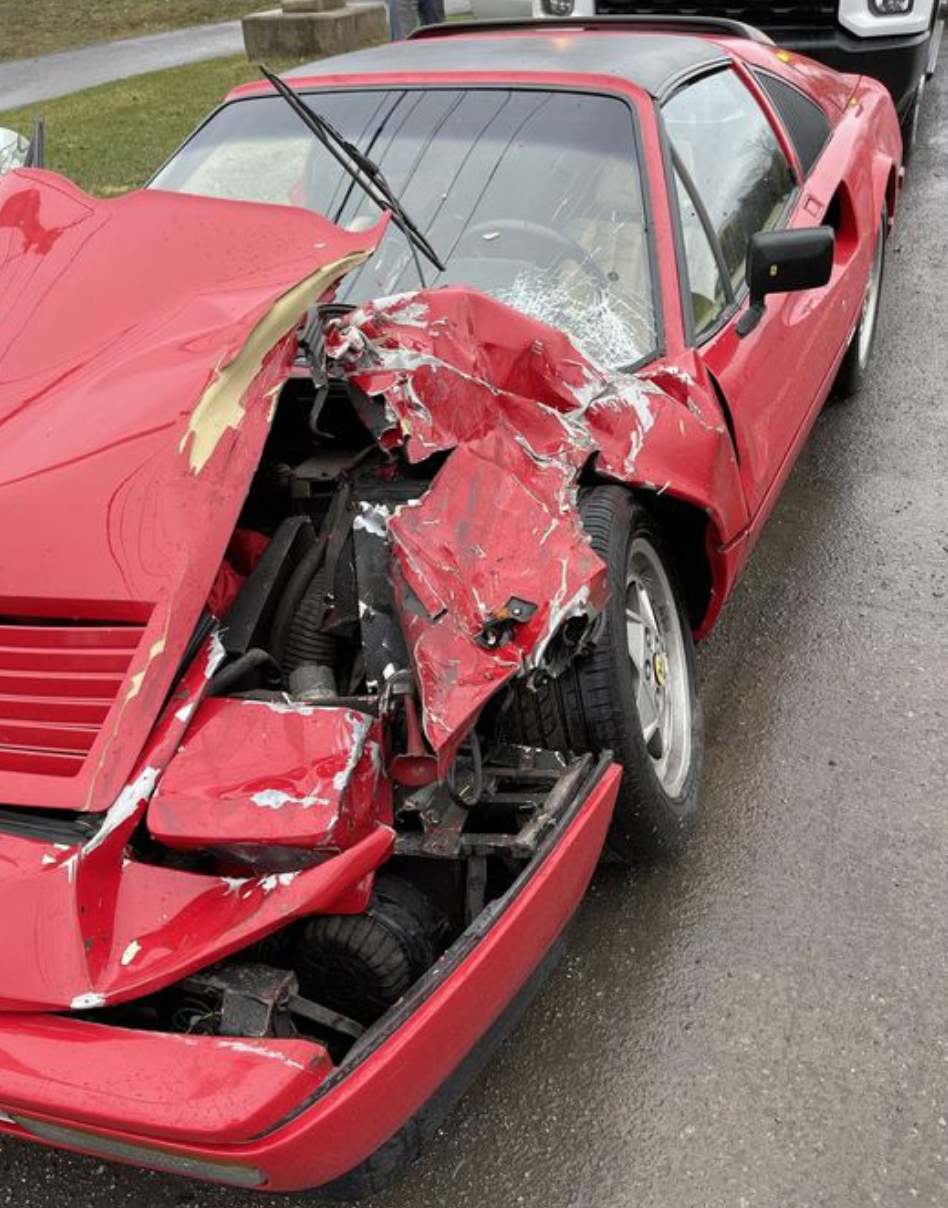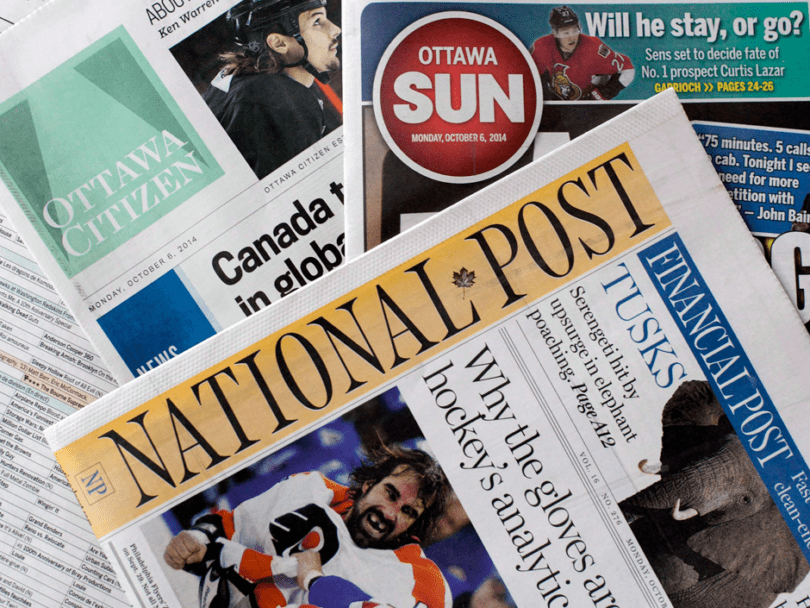This content is restricted to subscribers

The views, opinions and positions expressed by columnists and contributors are the author’s alone. They do not inherently or expressly reflect the views, opinions and/or positions of our publication.

This content is restricted to subscribers
The views, opinions and positions expressed by columnists and contributors are the author’s alone. They do not inherently or expressly reflect the views, opinions and/or positions of our publication.

What news reports about a traffic accident can reveal about the challenges facing Canadian political reporting today.
A t-boned Silverado, a crashed Ferrari and the confessions of a contrite high profile political adviser who admitted to a mistake in running a red light are at the epicentre of this media tempest.
What started as a traffic accident story has grown to become something bigger.
But the reporting does not reflect well on the health of political journalism today.
With the Ontario provincial election looming on June 2nd, there is little surprise about the political media appetite to cover a traffic accident involving Premier Ford’s campaign manager.
Add in a flash ‘ vintage Magnum PI ‘ sports car, and all the elements of a story were in place to distract from the awful daily double news of COVID and the Ukraine.
If not for these factors, the story would likely have hardly gained much attention.
Robert Benzies , the well regarded Queen’s Park Bureau Chief of the Toronto Star, broke the car crash news to his audience in print and Twitter.
His colleague, Rob Ferguson, helpfully tweeted that ‘fortunately, he [the politico] was not seriously injured’.
While journalists repeatedly note that they do not write the headlines over their copy, the initial Toronto Star and Saint Catharines Standard stories based on Benzie’s reporting summed up the article’s contents neatly in “Premier Ford’s campaign manager crashed vintage Magnum P.I. sports car.” The sub-headline continued that the politico ‘is recovering at home’.
The politico’s perspective was covered to a depth most non-fatal traffic accident coverage fails to attract. Instead readers were treated to details about how he had bought the car, why he had misinterpreted the traffic signals and the medical issues he had faced.
Benzies was doing his job when he linked the social media post to dash cam footage which clearly showed what happened. The politico had run a red light and slammed into a truck.
That dash cam footage once again proved that a picture is worth more than a thousand words. It ‘appears’ to demonstrate to our current generation of media followers the reality of what happened, without, of course, the background context.
The Twitterati universe was quick to denounce what appeared to them to be one-sided coverage. From their reaction, they could have been in the truck that got hit.
“Really? the headline of concern is about the Ford guy and not the victim truck driver? TRY BETTER FFS!!!”, replied one shocked commentator.
Others were equally critical of the seemingly cavalier dismissal of the real story. They asked whether the campaign manager was DUI or driving distractedly [perhaps looking at a text or involved in a call]. They were asking the questions that media would also normally probe before the rush to report one side of an accident
Once launched in the media, I have heard references based on more cynical speculation, conspiratorially suggesting that the politico was a ‘valued source’ and that the media was seeking to protect him either as a quid pro quo or to gain future credit in the bank.
Or that the journalist was being spun by the politico who was following the first rule of crisis management, get your side of the story out first.
This episode is revealing about the challenges facing political reporting today.
Citizen commentators have the capacity to share their critiques of political journalists to a broad audience. They can add and shape the story- the dash cam footage. They are also quick to categorize what they have been told.
The initial coverage may have started focusing on pure and simple politics, not about an accident. One can imagine Benzies searching for any impact the accident might have on the functioning of the upcoming provincial campaign and its leadership. As a sidebar, how did a politico promoting a populist regime own such an expensive and unique vehicle?
Once the incident got treated as a traffic accident story first and foremost, was it truly worthy of uncritical in-depth attention tied to a private citizen not even running for political office?
Because journalists are human beings first, they are willing to give the benefit of doubt to those with whom they work on a regularly basis. That should be no surprise to anyone. But the need to report without fear or favour also requires that they need to step back and ask tougher questions especially with those with whom they already have a relationship.
For example, the article could have provided context about the particular intersection and whether, as the politico had suggested, it was confusing to drivers and had led to other incidents. Or commentaries from other witnesses or the police?
There also remains the overarching pressure to break a scoop quickly. The danger in the rush to judgement remains, even for the most experienced of reporters, of sloppiness and lack of balance, something that tighter editing might have prevented.
The net result has been an unnecessary assault on the credibility of competent reporters.
Once the police and the courts determine what happened at the intersection, we shall learn whether charges will be laid. There may yet be a political outcome from this unfortunate episode.
But the process will not address the ongoing consequences for media credibility. That is the equally relevant story emerging out of this fender bender.
The views, opinions and positions expressed by columnists and contributors are the author’s alone. They do not inherently or expressly reflect the views, opinions and/or positions of our publication.

Back in 1999, when hip politicians like John Manley were gushing about the Internet, the Philadelphia Inquirer David Bold asked “If we are living in the middle of an information explosion, how come so few people are getting hit by any of it?” Well, fear not. Because now it seems every third news story carries the certification “experts say”.
Oddly, they always seem to say liberals are right. Including on the COVID file where they always favour more restrictions, for instance the Guardian’s Nov. 30 “Boris Johnson contradicts expert advice to curb Christmas socialising”. Or NBC’s August 14 double dip: “DeSantis and the GOP claim Covid is ‘pouring through’ the border. Experts are debunking them…. Experts say the rhetoric falls in line with a history of falsely blaming immigrants for the spread of disease in the United States.”
Sometimes it’s just vacuous, like the National Post headline “Pandemic will shape Liberal spending: experts” which I filed under “Thank goodness for experts” because “any idiot can see” would have worked too. But at least that one was true. Normally it’s just tendentious.
For instance NBC’s Dec. 6 “Fresh off the win in Texas, the anti-abortion movement could eye contraceptive access or in-vitro fertilization choices next, experts say.” And NPR’s Sept. 3 tweet “Texas law bans abortions after a ‘fetal heartbeat’ is detected, but doctors say that term isn’t based in science.” Doctors. Not “Some doctors”, or “Doctors we called until we got one to say what we wanted”.
Then there’s this 2013 gem from the Ottawa Citizen about “heavy lobbying from Israel to kill the recent nuclear deal with Iran by imposing stronger sanctions”. But see “Any new sanctions would scupper the deal and thereby seriously set back negotiations, profoundly upset U.S. allies and possibly lead to military action that could inflame the entire region, experts say.” And of course no experts say appeasement fuels further aggression. At least none we call.
Now you may think I’m cherry-picking. And NBC is a singularly chronic offender, with stories like “The 2021 Baseball Hall of Fame induction ceremony is on Wednesday, and, once again, it will be absent any inductees of Asian descent. Historians and sociologists say that a combination of Major League Baseball’s racist roots, contractual constraints and ideas of language and belonging have contributed to the disparity.” Or “As some states move to ban critical race theory in schools, education experts say restrictions may spill over to textbooks.”
If I keep multiplying examples I’m going to run into one of those “editors say” situations. But it’s like these warnings now about a “far-right” politician in France. A Google search “far-right politician France” yields 2.38 billion hits. Wow. Pretty right-wing place. But this one is Eric Zemmour.
Frankly I don’t know whether he’s a reprobate, dunce and xenophobe, a sage and a saint or some typically human mix of good and bad qualities. But I do know I could read mainstream news feeds for a year and not be told someone is “far-left”. Not even Saule Omarova, of whom the New York Times said instead “Bank lobbyists and Republicans painted her as a communist because she was born in the Soviet Union” not because she wanted to nationalize banks and worse. As I could read them for a year without hearing that experts say we need more choice in Canadian health care, minimum wages hurt minorities or anything “right-wing”.
Reporters are rarely experts on anything, especially younger ones with joint degrees in journalism and grievance studies. At the Climate Discussion Nexus we have endless fun with “scientists say” claims from people whose backgrounds invite the riposte “How would you know?” But they consider themselves experts, in the deep truths of structural oppression if not messy details like who Martin Luther King Jr. actually was or Boyle’s Law. And here there’s a sociological component noted by Paul Kingsnorth about COVID, that the mania for controlling people stems in part from elite discomfort with the populist uprising that led to things like Brexit and Trump.
It’s one thing to have ordinary people make disapproved choices among options put before them by their betters, like George W. Bush over Al Gore. It’s quite another to have them reject the list of choices altogether, raising the panicky fear that they might do it again. And here most journalists, whatever their intellectual accomplishments, are in the elite in terms of college educations and lifestyles as well as shared assumptions. Including that no intelligent, civilized person could dissent from orthodoxy on climate, gender, COVID or, well, anything really.
There’s a long history of leading with “critics say” when you don’t like someone. But back in 1999 I was confident there were adults in newsrooms who knew they had a thumb on the scales.
Nowadays experts say otherwise.
The views, opinions and positions expressed by columnists and contributors are the author’s alone. They do not inherently or expressly reflect the views, opinions and/or positions of our publication.